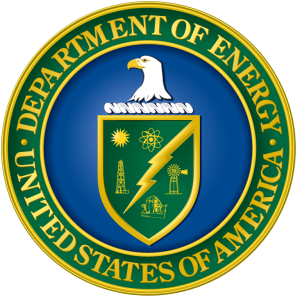 The U.S. Department of Energy’s (DOE) Office of Clean Energy Demonstrations (OCED) recently issued a Notice of Intent (NOI) for up to $400 million to spur innovative, community-focused clean energy solutions in rural and remote areas across the United States.
This funding—made possible by President Biden’s Bipartisan Infrastructure Law—will support the deployment of a variety of commercially available, clean energy technologies, demonstrating their viability and benefits to rural and remote residents, and ultimately encouraging widespread adoption.
The U.S. Department of Energy’s (DOE) Office of Clean Energy Demonstrations (OCED) recently issued a Notice of Intent (NOI) for up to $400 million to spur innovative, community-focused clean energy solutions in rural and remote areas across the United States.
This funding—made possible by President Biden’s Bipartisan Infrastructure Law—will support the deployment of a variety of commercially available, clean energy technologies, demonstrating their viability and benefits to rural and remote residents, and ultimately encouraging widespread adoption.
The upcoming investment is part of the Energy Improvements in Rural or Remote Areas (ERA) Program, which aims to fund community-driven projects that demonstrate clean energy systems, deliver measurable and sustained benefits to people who live in rural or remote areas, and build clean energy knowledge, capacity, and self-reliance throughout rural America.
The anticipated funding builds on three previous funding rounds from the ERA Program, totaling more than $450 million for 36 projects and 67 prize winners across the country. Throughout the previous funding rounds, OCED collected feedback and data from applicants, rural communities, and other stakeholders to inform the development of this new anticipated funding opportunity. The anticipated new funding plans to support the demonstration of energy technologies that provide clean, resilient, reliable, affordable power, while also aiming to increase local energy independence and economic development.
Eligible projects must address at least one of the following: improving overall cost-effectiveness of energy generation, transmission, or distribution systems; siting or upgrading transmission and distribution lines; reducing greenhouse gas emissions from energy generation in rural or remote areas; providing or modernizing electric generation facilities; developing microgrids; or increasing energy efficiency. OCED expects that this opportunity will enable communities to demonstrate practical paths that will catalyze more rural and remote communities to integrate and benefit from clean energy.
OCED plans to fund anywhere from 16-69 projects, offering a range of funding from $2-50 million each with a 5-50 percent minimum non-federal cost share per project. Eligible applicants include tribal nations, state and local governmental entities, non-profit and for-profit entities, rural electric cooperatives, farming associations and cooperatives, institutions of higher education, and both incorporated and unincorporated consortia. The funding opportunity plans to welcome applications across a range of topic areas.
DOE anticipates releasing a Notice of Funding Opportunity this fall. Read the NOI here.
